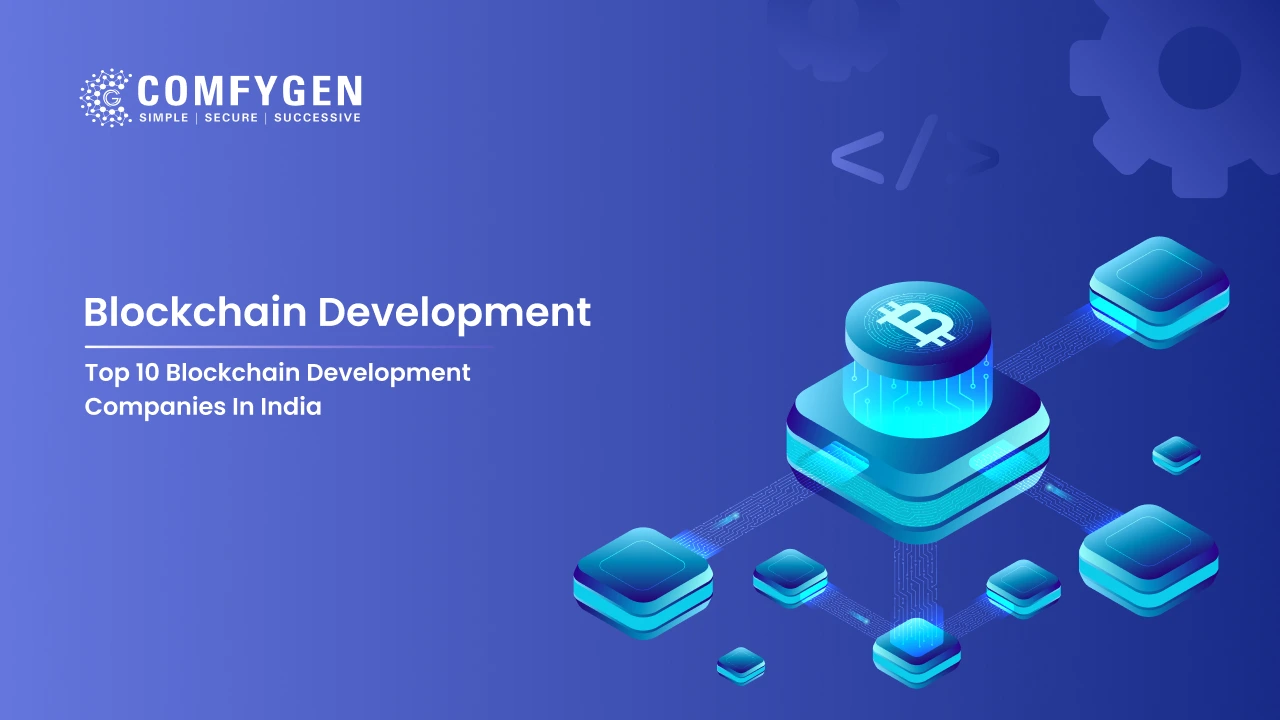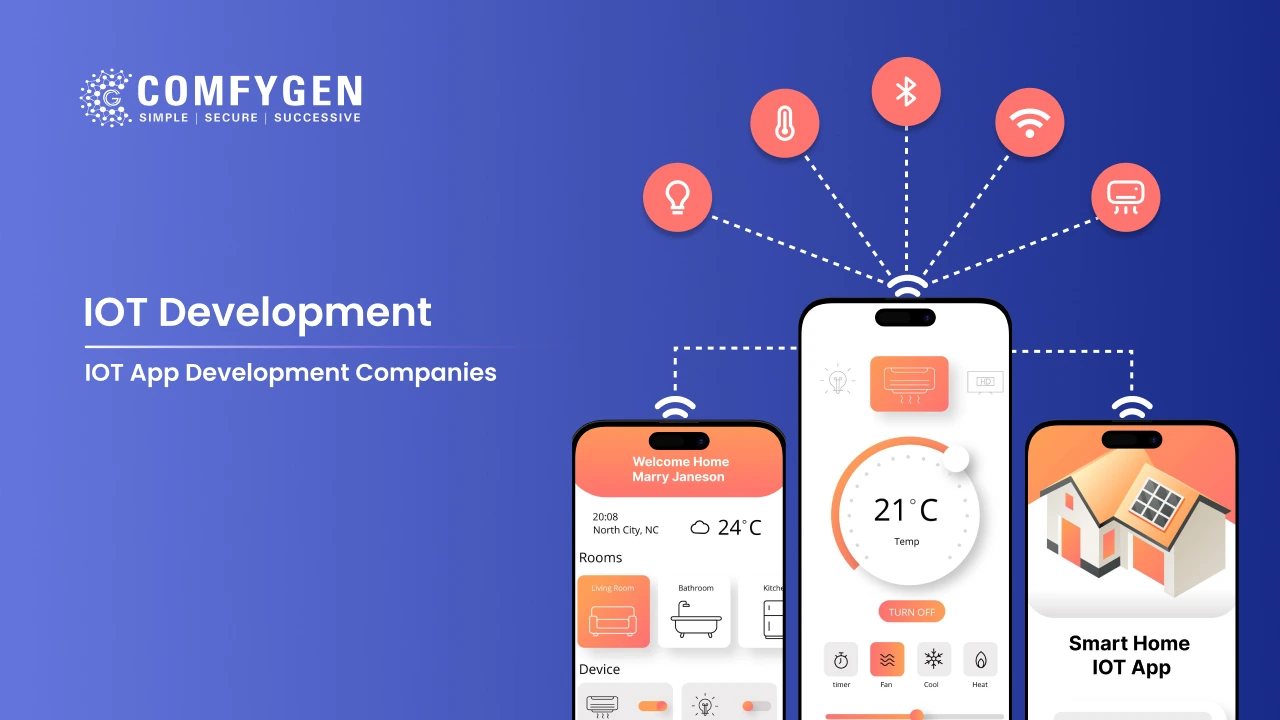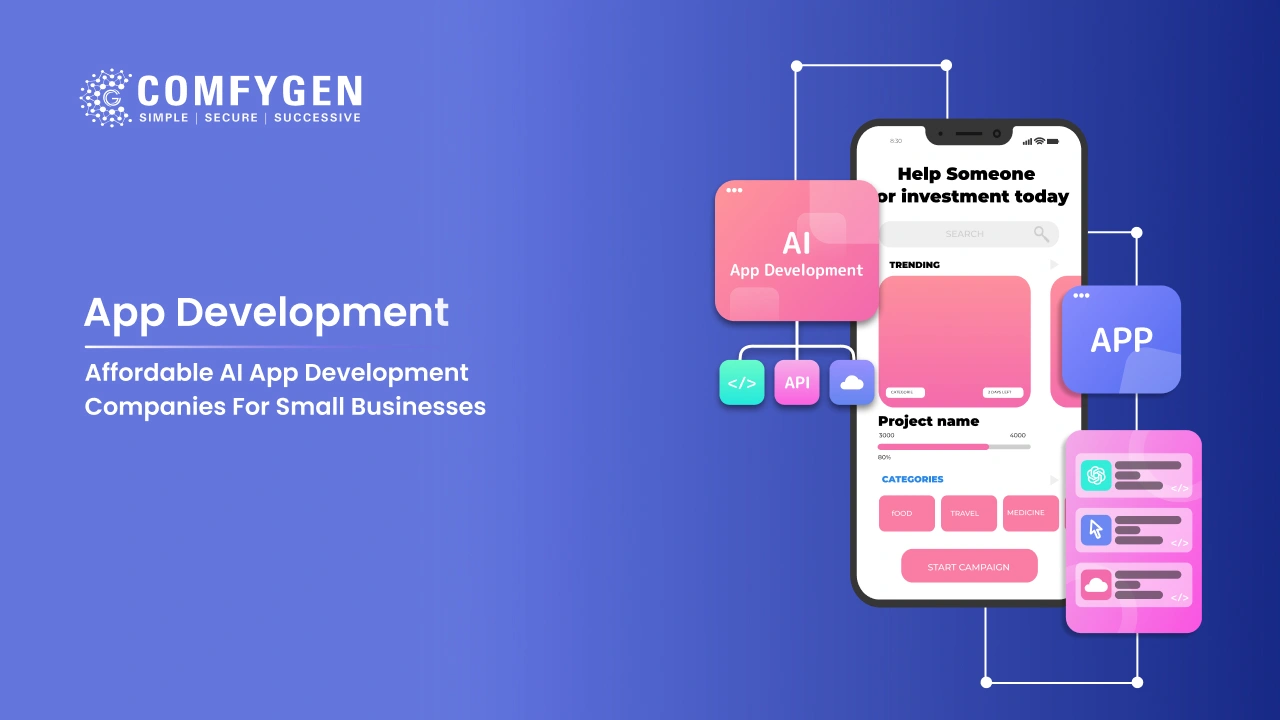How Much Does It Cost To Hire Ethereum Developers From India?
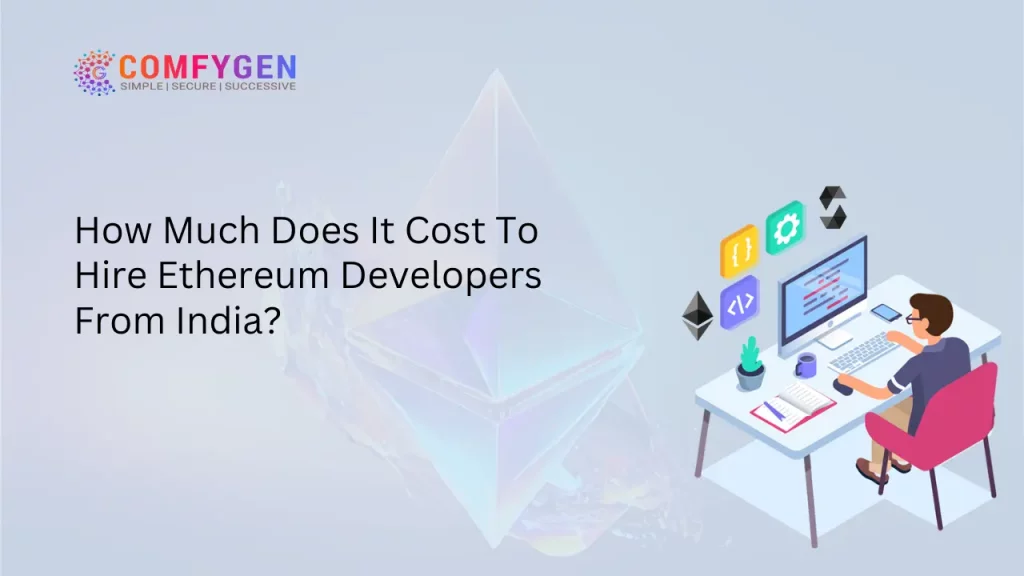
For some time now, crypto-based solutions and services have been in high demand, and new protocols are making them even more adaptable. New businesses have found it easier to streamline not only their payments but also other aspects of their operations since the advent of Ethereum. For this to be possible, you will need to hire Ethereum developers who are well-versed in the technology.
In order to understand the workings and benefits of this technology, let’s first examine how it works.
What is an Ethereum?
Ethereum stands as a decentralized, open-source blockchain platform, empowering developers to create and implement smart contracts and decentralized applications (dApps). Conceived by Vitalik Buterin in 2013 and launched in 2015, Ethereum introduces Ether (ETH) as its native cryptocurrency. Ether serves as the medium for transaction fees and computational services within the network. Its programmable architecture fosters a diverse array of applications, extending far beyond basic digital currency functionalities.
How Does Ethereum Work
Ethereum operates as a decentralized platform that runs smart contracts and decentralized applications (dApps) development using blockchain technology. Here’s an in-depth exploration of its functionality:
- Blockchain Structure: Ethereum’s blockchain is a distributed ledger that records all transactions and smart contract operations. Each block contains a list of transactions, a reference to the previous block, and computational data.
- Smart Contracts: These innovative digital agreements operate autonomously, with predefined terms encoded directly into the blockchain. By eliminating intermediaries, they execute and enforce agreements automatically, ensuring trust and efficiency in transactions.
- Ethereum Virtual Machine (EVM): The EVM is the runtime environment for executing smart contracts on Ethereum Blockchain. It ensures that code is executed in a decentralized manner across the network.
- Ether (ETH): The native cryptocurrency of Ethereum, used to compensate participants (miners or validators) for computational services and transaction processing. It acts as “fuel” for running operations on the network, often referred to as “gas.”
- Consensus Mechanism: Initially, Ethereum used Proof of Work Blockchain to validate transactions and secure the network. However, it has transitioned to Proof of Stake (PoS) with Ethereum 2.0, where validators are chosen based on the amount of ETH they hold and are willing to “stake” as collateral.
- Nodes and Decentralization: Ethereum runs on a global network of nodes, each maintaining a copy of the blockchain. These nodes validate and propagate transactions and smart contract interactions, ensuring the network’s decentralization and security.
- dApps and Development: Blockchain developers use programming languages like Solidity to create smart contracts and dApps on Ethereum. These applications can range from decentralized finance (DeFi) platforms to non-fungible tokens (NFTs) and beyond.
Read More: Creating Your Own DApp with Ethereum Smart Contract Development
Why Use Ethereum Blockchain
By using this token standard, enterprises can create new rules and implement them with 100% efficiency. Technology that is transparent and inclusive makes this possible.
Ethereum’s protocol allows you to introduce a number of changes that improve the overall functioning of your business. Moreover, this token standard allows you to provide a solution to any problem that you may encounter.
With this platform, you can create a new token or establish a prolific network for your budding startup. You can take your enterprise to a new level of efficacy and do it on a much larger scale with this solution. Furthermore, it employs a clear strategy and creates a conducive environment that kills all flaws forever.
This solution gives you a clear picture of when your financial transactions are completed. No matter how you approach each solution, you get to emphasize the importance of giving the performance more time.
You get to review the tools more closely when you apply the tokens or any other feature of this mechanism. As a result, you have an edge on every front and are able to bring a greater sense of certainty to the operation.
Role And Responsibilities of Ethereum Developers
Ethereum developers play an important role in the development and maintenance of the Ethereum blockchain development. Here are several important roles and responsibilities they undertake:
- Smart Contract Development: Ethereum developers primarily work with Solidity, the programming language used to write smart contracts on the Ethereum platform. They design, develop, and deploy smart contracts that automate various processes, such as crypto token creation, decentralized finance (DeFi) development protocols, non-fungible tokens (NFTs), dApp development, and more.
- Protocol Development: Developers contribute to the improvement and evolution of the Ethereum protocol itself. This involves proposing and implementing upgrades, such as Ethereum Improvement Proposals (EIPs), to enhance scalability, security, and functionality of the network.
- Decentralized Application (dApp) Development: Ethereum developers create decentralized applications that run on the Ethereum blockchain development. These dApps can range from simple games and social networks to complex financial platforms and governance systems.
- Security Auditing: Developers conduct security audits to identify vulnerabilities in smart contracts and dApps. They use various tools and techniques to ensure that the code is secure and resilient against attacks, such as reentrancy, overflow, and logic bugs.
- Community Engagement: Developers actively participate in the Ethereum community by attending conferences, contributing to forums (like Reddit and Ethereum’s official forums), and collaborating with other developers on open-source projects. They also provide support and guidance to newcomers in the ecosystem.
- Research and Innovation: Developers continuously research and experiment with new technologies and ideas to push the boundaries of what’s possible on the Ethereum platform. This includes exploring scalability solutions (like sharding and layer 2 solutions), privacy-preserving techniques, and novel consensus mechanisms.
- Documentation and Education: Developers contribute to the documentation of Ethereum’s tools, libraries, and best practices to make it easier for others to learn and build on the platform. They may also create tutorials, blog posts, and video content to educate the community about Ethereum development.
- Collaboration with Other Projects: Ethereum developers often collaborate with other blockchain projects within and outside the Ethereum blockchain development to integrate cross-chain interoperability and explore new use cases.
Also Read: The Role of Blockchain Technology in dApp Development 2024
Why Hire an Ethereum Developer from India?
Hiring an Ethereum developer from India can offer several advantages:
- Cost Efficiency: The hourly rates for high-skilled Ethereum developers in India are often lower compared to many other countries, making it cost-effective to hire Ethereum developers without compromising on quality.
- Talent Pool: India boasts a vast pool of talented developers with expertise in blockchain technology and related fields. Many Indian developers have strong educational backgrounds in computer science and engineering, providing a solid foundation for Ethereum development services.
- Experience with Blockchain: India has a growing community of blockchain developers who are actively involved in projects ranging from cryptocurrencies to enterprise blockchain development solutions. This experience translates into a deep understanding of Ethereum’s architecture, smart contract development, and decentralized application (dApp) deployment.
Read Also: Unlocking the Potential of Blockchain with Ethereum Development
- English Proficiency: Communication is essential when collaborating on complex projects like Ethereum development. Indian developers often have proficient English language skills, enabling effective communication with international teams and clients.
- Time Zone Compatibility: India’s time zone overlaps with many regions across the globe, making it easier to coordinate with distributed teams and ensure continuous development progress.
- Diverse Skillsets: Indian developers often possess diverse skillsets beyond Ethereum development, such as web development, mobile app development, and cloud computing. This versatility can be valuable for projects requiring integrated solutions.
- Growing Ecosystem: India’s blockchain ecosystem is rapidly expanding, with a thriving community of developers, entrepreneurs, and researchers. Hiring Ethereum developers in India allows access to this vibrant ecosystem, fostering collaboration and knowledge sharing.
Hiring Ethereum developers in India offers a compelling combination of cost efficiency, technical expertise, and a supportive ecosystem, making it an attractive choice for businesses and organizations looking to leverage blockchain technology.
Build an Ethereum Smart Contract in Solidity
Top Ethereum Developer Skills
- Solidity Programming: Proficiency in Solidity, the primary language for writing smart contracts on the Ethereum blockchain, is essential. Developers should understand Solidity syntax, data types, and best practices for secure contract development.
- Smart Contract Development: Experience in designing, implementing, and testing smart contracts to automate agreements and transactions on the Ethereum network. This includes writing efficient and secure code, handling exceptions, and integrating with external services.
Also Read: How to Build an Ethereum Smart Contract in 7 Easy Steps
- Ethereum Development Tools: Familiarity with Ethereum development tools and frameworks such as Truffle, Remix, and Hardhat for smart contract compilation, testing, and deployment. Knowledge of tools like Infura or Alchemy for interacting with the Ethereum network via APIs is also beneficial.
- Web3.js or Ethers.js: Proficiency in Web3.js or Ethers.js, JavaScript libraries for interacting with Ethereum nodes and smart contracts from web applications. Developers should understand how to connect frontend interfaces with Ethereum smart contracts using these libraries.
- Decentralized Application (dApp) Development: Experience in building decentralized applications (dApps) that interact with smart contracts and the Ethereum blockchain. This includes frontend development using web technologies like HTML, CSS, and JavaScript, along with backend integration with Ethereum nodes.
- Security Best Practices: Understanding of security principles and best practices for smart contract development to mitigate common vulnerabilities such as reentrancy, integer overflow, and denial-of-service attacks. Knowledge of tools like MythX or Securify for automated security analysis is advantageous.
- Blockchain Concepts: A solid understanding of blockchain fundamentals, including consensus mechanisms, cryptographic techniques, and transaction processing. This foundational knowledge helps developers grasp the underlying principles of Ethereum and design efficient solutions.
- Version Control Systems: Proficiency in version control systems like Git for collaborative development, code management, and tracking changes to Ethereum smart contracts and dApp codebases.
- Problem-Solving Skills: Ability to analyze complex requirements, identify technical challenges, and propose effective solutions for Ethereum development projects. Strong problem-solving skills are essential for debugging and optimizing smart contract code.
- Continuous Learning: A willingness to stay updated on the latest developments in Ethereum, blockchain technology, and related fields. Ethereum developers should be proactive in learning new tools, techniques, and standards to enhance their skills and adapt to evolving requirements.
Read More: Hire Blockchain App Developers – Things to Choose Before Hiring a Blockchain App Developer
When Hiring Ethereum Developers, Consider These Factors
When hiring Ethereum developers, several key factors should be taken into consideration to ensure you find the right fit for your project:
- Solid Understanding of Blockchain Fundamentals: Look for candidates who possess a deep understanding of blockchain technology, including concepts such as distributed ledger, consensus mechanisms, cryptographic principles, and smart contracts.
- Proficiency in Ethereum Development: Ensure that candidates have experience with Ethereum development solutions, including proficiency in Solidity (or other Ethereum-compatible languages) and familiarity with Ethereum development tooling such as Truffle, Remix, and web3.js.
- Smart Contract Development Skills: Evaluate candidates’ ability to design, develop, and deploy smart contracts on the Ethereum blockchain. Look for experience in building various types of smart contracts, such as ERC-20 tokens, decentralized finance (DeFi) protocols, and non-fungible tokens (NFTs).
- Security Awareness: Assess candidates’ understanding of common security vulnerabilities in smart contracts and their ability to write secure code. Look for experience in conducting security audits and implementing best practices for secure smart contract development.
- Experience with Ethereum Ecosystem: Consider candidates who are familiar with the broader Ethereum ecosystem, including Ethereum Improvement Proposals (EIPs), Ethereum clients (such as Geth and Parity), Ethereum Virtual Machine (EVM) optimizations, and Ethereum scaling solutions (like layer 2 solutions and Ethereum 2.0).
- Problem-Solving Skills: Look for candidates who are effective problem solvers and critical thinkers, capable of tackling complex challenges in Ethereum development. Assess their ability to troubleshoot issues, optimize performance, and innovate solutions.
- Open-Source Contributions and Community Engagement: Favor candidates who have contributed to open-source projects related to Ethereum and actively participate in the Ethereum community. Look for evidence of contributions to GitHub repositories, participation in forums and discussions, and engagement with the developer community.
- Communication and Collaboration Skills: Consider candidates who are effective communicators and collaborators, capable of working in a team environment and effectively communicating technical concepts to non-technical stakeholders.
- Adaptability and Continuous Learning: Seek candidates who demonstrate a willingness to adapt to new technologies and embrace continuous learning. The blockchain space is rapidly evolving, so developers need to stay updated on the latest developments and trends.
- Cultural Fit and Passion for Decentralization: Assess candidates’ alignment with your organization’s values and mission, particularly if you prioritize decentralization and innovation. Look for candidates who are passionate about blockchain technology and its potential to drive positive change.
Cost To Hire an Ethereum Developer In India?
If you hire an Indian developer for Ethereum development, you may have to pay between 40 and 95 USD$ per hour. As well as getting top-of-the-line services, this is probably the cheapest price for this service.
Nevertheless, this is only possible if you partner with a company that is known for making this service more affordable for startups. It is important to keep in mind that there are many companies offering such a solution, and many of them are incompetent.
Therefore, you should choose the service provider after thoroughly checking out their previous customers’ experiences. Furthermore, you must ensure that the developers understand and work in accordance with your business motto.
Making the hiring process more meticulous, which only happens with professionals, is the only way to ensure that. For the best Ethereum development services, Comfygen India is one name you can trust.
Comfygen India provides Ethereum developers who are proficient in all aspects of this technology. Furthermore, we add even more value by customizing this solution to meet your needs.
It is our goal to exceed your expectations with the best results by understanding the requirements of your project. With utmost precision and expertise, we are Ethereum token development and other solutions based on them.
Many enterprises and startups have achieved success with our insights and knowledge of blockchain. Now is the time to talk to us if you are looking for a crypto-based solution for your business!
Want To Hire Ethereum Developer in India?
Hourly Rates for Ethereum Developers in Other Country
| Country | Approximate Hourly Rate (USD) |
| United States | $100 – $200 |
| United Kingdom | $80 – $150 |
| Australia | $70 – $130 |
| Canada | $70 – $120 |
| Germany | $60 – $110 |
| India | $40 – $95 |
Conclusion
The demand for Ethereum developers is on the rise as blockchain adoption continues to accelerate. Hiring Ethereum developers from India offers several advantages, including cost efficiency, access to a talented pool of developers, and a supportive ecosystem. When hiring Ethereum developers, it’s essential to consider factors such as their understanding of blockchain fundamentals, proficiency in Ethereum development, security awareness, and problem-solving skills. By partnering with a reputable service provider like Comfygen India, businesses can access top-quality Ethereum development services tailored to their needs, leading to the successful implementation of blockchain solutions.
Quick Contact Us:
Call/WhatsApp: +91 9587867258
Email: sales@comfygen.com

Mr. Saddam Husen, (CTO)
Mr. Saddam Husen, CTO at Comfygen, is a renowned Blockchain expert and IT consultant with extensive experience in blockchain development, crypto wallets, DeFi, ICOs, and smart contracts. Passionate about digital transformation, he helps businesses harness blockchain technology’s potential, driving innovation and enhancing IT infrastructure for global success.
Based on Interest
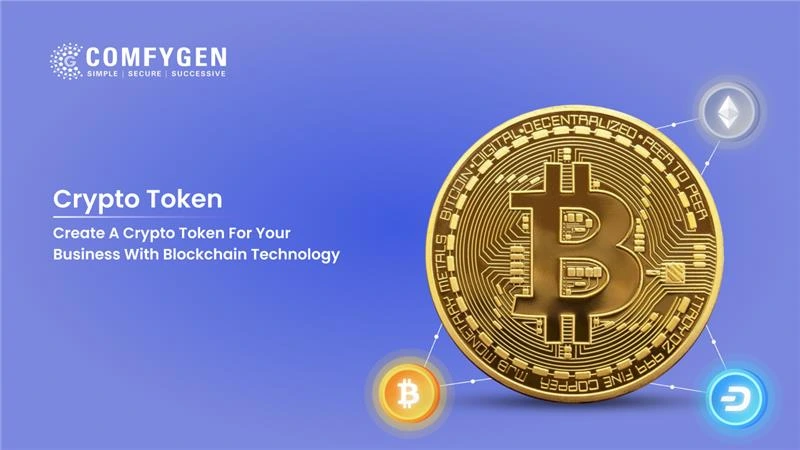
Create a Crypto Token for Your Business with Blockchain Technology
Blockchain technology evolution is transforming every industry with its secure parameters, transparency, and interoperability. Additionally, the tokenization market is growing from $2-3…




